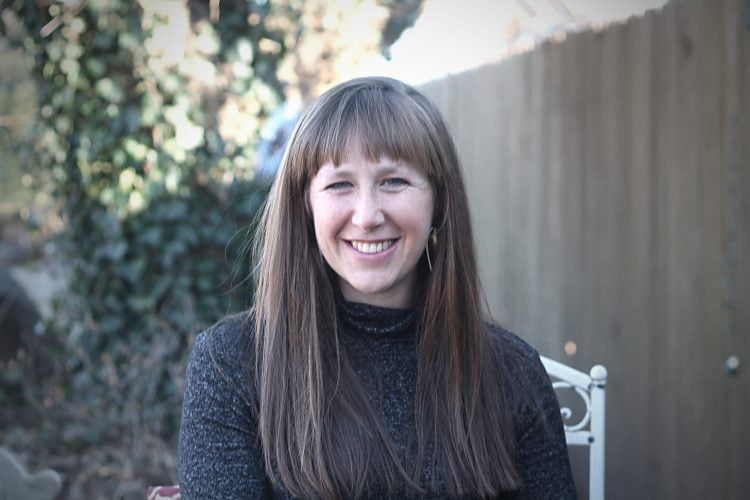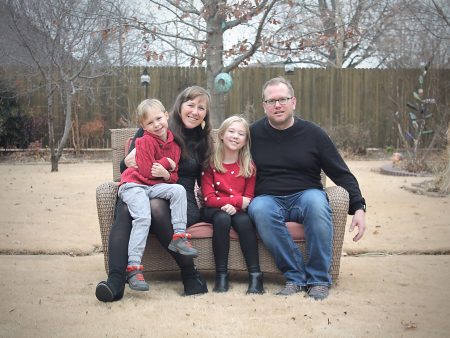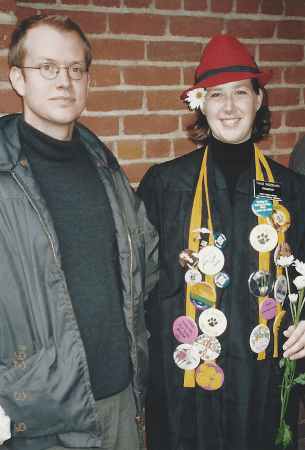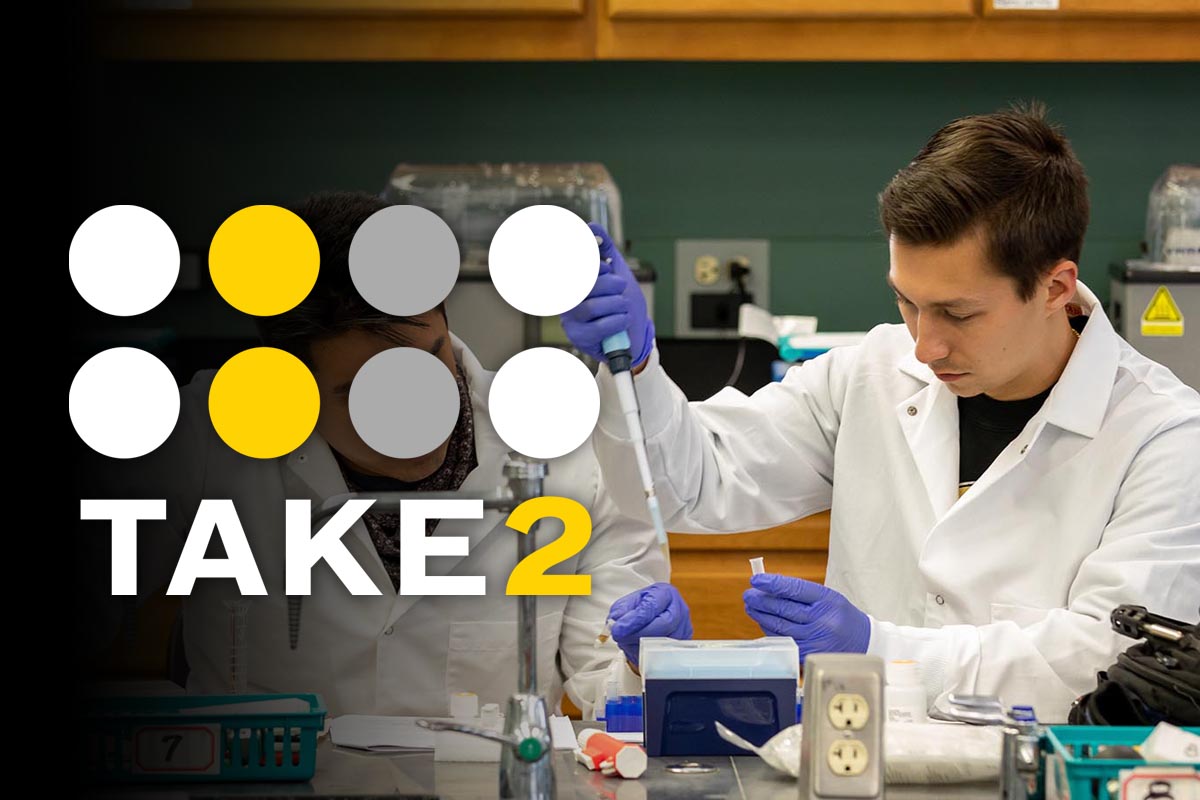Rediscovering Compassion: Alumna works to make refugee resettlement process easier for families

Melissa Goss-Jentz
At the parks in Seattle, Washington, where she runs and plays with her small children, Melissa Goss-Jentz ’03 is confronted daily with homelessness.

Melissa Goss-Jentz and her family outside their home in Seattle
“It’s becoming a bigger and bigger issue in Seattle, and we regularly see homeless people in all facets of our lives,” she said. “I was finding that the sympathy and compassion I was raised with was getting pushed to its limits as I became frustrated with what was happening with the city.”
She contributed to a local homeless outreach center, but each day, as she went about her life, she saw the problem only continue to worsen. “I knew that if I was going to reawaken my compassion, I needed to get involved,” she said.
She began working with the outreach organization as part of a church partnership. The center hosts a women’s breakfast each month for the homeless, providing hot food and friendship. Goss-Jentz is also involved in other projects including holiday drives and a program for families to come together to help and better understand the homeless.
While her work with the homeless is Goss-Jentz’s way of addressing an immediate concern, her passion lies with helping a different type of homeless—refugees who are trying to resettle in America. For years, she has been involved with World Relief Seattle as a cultural companion—an individual who commits to working with a refugee family for at least six months, serving as a sort of social worker who helps in all aspects of the transition to resettlement. She now also serves as a trainer and has led an effort to revamp the organization’s curriculum for volunteers.
“If you can help to educate people about a problem, and then you introduce them to a vulnerable person—whether it be a homeless person or a refugee—and help them to build a relationship with that person, these issues completely stop being political, and they become very personal, intense relationships,” she said. “Suddenly, it’s relational. I find that tears down a lot of those prejudices and frustrations and discriminations once people start to understand what someone else is personally going through, and especially once someone starts going through that with them.”

Melissa Goss-Jentz pictured as a student with her future husband
Goss-Jentz believes her commitment to helping others stems from a set of values instilled by her parents and also because of the intense relationships she formed while pursuing an economics major at Randolph-Macon Woman’s College.
“That was one of the first places I met really strong women,” she said. “I learned to be okay with me and what I was doing, and I formed a network of people I loved and who supported me. I still draw on that today.”
After meeting her future husband while studying abroad in Germany, Goss-Jentz returned to marry him after graduation. They later moved to Texas and then Seattle. It was in Texas that she began to learn about the refugee problem.
There are times when Goss-Jentz feels overwhelmed at the enormous issues facing both refugees and the homeless in the country. But she realizes that any answer starts with individuals who step up and try to do something to make life better for those around them.
“If we are all putting drops into the Compassion bucket, it’s going to fill up faster,” she said.
Tags: alumnae, outcomes, Vita No. 7
